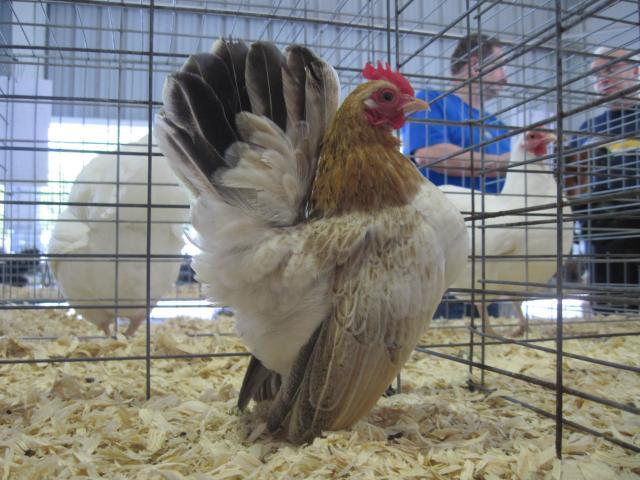- May 19, 2009
- 2,063
- 61
- 173
This thread is prompted by so many posts lamenting that "I got screwed" or "I don't think this is a Cochin." Nobody wants to be unhappy with a purchase, and I honestly don't think sellers want you to be unhappy, either. Granted, some are out to just unload their junk, but who's to say that you're the one who has to buy it? I don't mean to offend, but it upsets me when someone rants on here that they were "duped" into buying single combed smooth feathered clean legged Silkies. It doesn't have to happen. Following are my two cents, and I hope others will post with more great tips.
1. Know what you want - Nobody can sell you what you want if you yourself don't know. Look up the standards of the breed you want and be able to identify the birds. Even if it's just the basics, like "Silkies have silkied feathers and crests", or "leghorns have white ears". Know your basic breed shape and size, your leg, skin, and ear colors, know your comb type, know your plumage patterns.
2. Don't count on the seller to know what he has - Just because somebody has something, it doesn't mean that he knows what it is. Maybe it was sold to him "as a Serama", but he didn't do his homework either. It isn't your job to educate him, but you also don't have to repeat his mistake. Also, don't trust the seller to know SQ. He may sell you the best he has, but it still might not win any shows.
3. Buy eggs or chicks with caution - You can't tell by looking at an egg or a chick what it is going to look like as an adult. If you are looking for nice show quality RIR's, you should buy nice show quality RIR's instead of answering a CL ad for "Rode Eyelan Red chicks."
4. Be very specific when you ask questions - Instead of "do these birds lay dark eggs?" ask "show me an example of the eggs I can expect to get". Dark eggs to the seller may be different than dark eggs to you.
5. Insist on healthy birds - Know the signs of illness, inspect for mites, smell the bird's face. Hang out until you can see it's droppings. You don't have to go into the chicken's living quarters, but be wary when you are kept out of it. And, of course, quarentine when you get home.
6. Don't be afraid to walk away - Even if you drove for days for your birds, trust your instincts when they tell you to step back. Other opportunities will present themselves, and you will be armed with some experience.
7. Chalk some purchases up to learning experiences - You don't have to be angry about every transaction that doesn't please you. Be willing to learn from your chickens and make a better decision next time. You may have to (literally) eat your mistakes, but you can add to your list of criteria when chicken shopping.
1. Know what you want - Nobody can sell you what you want if you yourself don't know. Look up the standards of the breed you want and be able to identify the birds. Even if it's just the basics, like "Silkies have silkied feathers and crests", or "leghorns have white ears". Know your basic breed shape and size, your leg, skin, and ear colors, know your comb type, know your plumage patterns.
2. Don't count on the seller to know what he has - Just because somebody has something, it doesn't mean that he knows what it is. Maybe it was sold to him "as a Serama", but he didn't do his homework either. It isn't your job to educate him, but you also don't have to repeat his mistake. Also, don't trust the seller to know SQ. He may sell you the best he has, but it still might not win any shows.
3. Buy eggs or chicks with caution - You can't tell by looking at an egg or a chick what it is going to look like as an adult. If you are looking for nice show quality RIR's, you should buy nice show quality RIR's instead of answering a CL ad for "Rode Eyelan Red chicks."
4. Be very specific when you ask questions - Instead of "do these birds lay dark eggs?" ask "show me an example of the eggs I can expect to get". Dark eggs to the seller may be different than dark eggs to you.
5. Insist on healthy birds - Know the signs of illness, inspect for mites, smell the bird's face. Hang out until you can see it's droppings. You don't have to go into the chicken's living quarters, but be wary when you are kept out of it. And, of course, quarentine when you get home.
6. Don't be afraid to walk away - Even if you drove for days for your birds, trust your instincts when they tell you to step back. Other opportunities will present themselves, and you will be armed with some experience.
7. Chalk some purchases up to learning experiences - You don't have to be angry about every transaction that doesn't please you. Be willing to learn from your chickens and make a better decision next time. You may have to (literally) eat your mistakes, but you can add to your list of criteria when chicken shopping.





